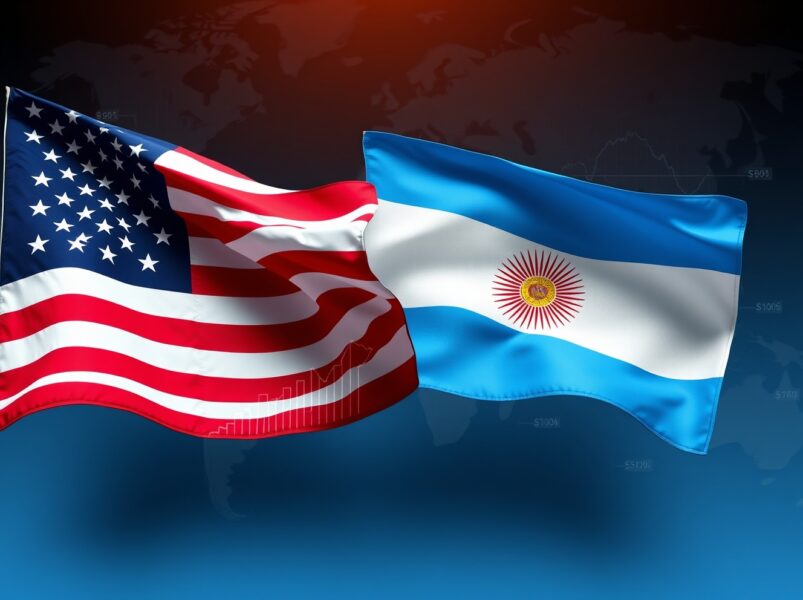‘Bitcoin For America Act’ Proposes Voluntary Contributions To U.S. Strategic Bitcoin Reserve In Federal Taxes
Key Takeaways
- On November 20, Rep. Warren Davidson of Ohio introduced the Bitcoin for America Act in the House, which would allow citizens to pay their taxes in BTC, with the proceeds going to the newly established U.S. Strategic Bitcoin Reserve.
- The bitcoins deposited in the SBR will be held for a minimum of 20 years, with limited scheduled dispositions allowed only after that period. Payments will be determined based on the fair market value of BTC at the time of transfer, similar to tax settlements made in foreign currencies.
- The bill expands on the provisions for the U.S. Strategic Bitcoin Reserve, established by President Trump via an executive order in March 2025. The national stockpile will be funded entirely using bitcoins seized as part of civil and criminal forfeitures, with no incremental cost on taxpayers.
- As of November 2025, the U.S. government holds approximately 326,588 BTC, worth over $28 billion. These coins are held in wallets controlled by the FBI, IRS, DOJ, USMS, DEA, and other law enforcement agencies.
Representative Warren Davidson (R-OH) has introduced the Bitcoin for America Act in the U.S. House of Representatives – a legislation designed to modernize the country’s financial system and position it at the forefront of the global crypto economy.
The landmark bill aims to allow Americans to pay taxes in BTC, with all proceeds directed to the U.S. Strategic Bitcoin Reserve (SBR), which was established by President Donald Trump via an executive order in March 2025. The initiative is focused on enabling citizens to voluntarily contribute to the federal bitcoin stockpile.
‘Bitcoin For America Act’ to Allow Tax Payments in BTC, With Proceeds Directed to the U.S. Strategic Bitcoin Reserve and Held for 20 Years
Under the proposed bill, taxpayers would be able to settle federal tax obligations in bitcoin by transferring them directly to the U.S. Treasury or to designated financial agents approved by the Secretary of the Treasury, Scott Bessent.
The transferred Bitcoin would fulfill tax liabilities, without incurring any capital gains on the transaction. The amount credited would be determined on the fair market value of bitcoin at the time of transfer, similar to how tax payments in foreign currency are currently handled.
The bill also empowers the Treasury to establish robust custody measures for the new Strategic Bitcoin Reserve, with provisions for cold storage, multi-signature wallets, and geographically distributed storage facilities. Bitcoin deposited into the reserve would be held for a minimum of 20 years, with limited scheduled dispositions allowed only after that period.
The Bitcoin for America Act seeks to ensure that the reserve assets are used as a long-term store of value, preserving them for future generations.
The U.S. Strategic Bitcoin Reserve is funded entirely by assets seized as part of criminal and civil proceedings by various federal agencies, with no incremental cost to taxpayers. Trump’s executive order also mandates a full audit of the government’s bitcoin holdings, prohibits any sale from the reserve, and promotes budget-neutral acquisitions of additional BTC.
Rep. Warren’s Bill Promotes Bitcoin as an Alternative Store of Value and Inflationary Hedge for the U.S. Government
The legislation aims to diversify the U.S. government’s portfolio by investing in non-inflationary assets, providing an alternative store of value to the dollar. Bitcoin’s inherent scarcity and inflation-resistant nature position it as a hedge against long-term devaluation of fiat currencies.
Rep. Warren and the bill’s proponents argue that it is focused on reducing America’s reliance on debt and strengthening the federal government’s balance sheet.
In a recent conversation with the Bitcoin Policy Institute (BPI), the Republican lawmaker pointed out that countries like China and Russia are already accumulating bitcoin in an effort to strengthen their financial systems. He believes that the United States could maintain its competitive edge in the digital economy by adding BTC into federal finances.
– the legislation document reads.
Warren highlighted the long-term benefits of the bill, suggesting that if the U.S. government had been accumulating bitcoin since 2012, it could have helped address the growing national debt, which currently stands at $38 trillion. He also stressed that the legislation is opt-in and democratic, meaning that Americans can voluntarily decide to contribute to the reserve, and it won’t be a mandate.
The representative from Ohio claimed that money was designed as a surveillance system, and bitcoin’s premise is the return of sound money, where the control of money is taken out of the hands of the government.
U.S. Government is the Largest Nation-State Holder of Bitcoin, with 326,588 BTC in its Coffers
According to Arkham Intelligence data, the U.S. government holds approximately 326,588 BTC, valued at around $28.9 billion at the current market rate. This makes America the largest nation-state holder of the alpha cryptocurrency.
These coins are held in wallets controlled by various federal agencies, including the Federal Bureau of Investigation (FBI), Internal Revenue Service (IRS), Drug Enforcement Administration (DEA), the U.S. Marshals Service (USMS), and the Department of Justice (DoJ).
The USMS is the primary federal agency responsible for holding and auctioning seized crypto, as it manages assets transferred to the government from criminal and civil forfeitures. The agency reportedly holds 28,988 BTC ($2.47 million) as of March 2025.
The Treasury Department is in charge of the Strategic Bitcoin Reserve and the United States Digital Asset Stockpile, which holds other crypto assets.
Treasury Secretary Scott Bessent is tasked with administering the reserve to which federal agencies must transfer their crypto holdings. The DOJ has appointed Anchorage Digital, a federally chartered crypto bank, to serve as the custodian for seized cryptocurrencies, enhancing secure storage and liquidation capabilities.
At the time of writing, Bitcoin (BTC) is trading at $85,219 – down 7.2% in 24 hours.
The post ‘Bitcoin For America Act’ Proposes Voluntary Contributions To U.S. Strategic Bitcoin Reserve In Federal Taxes appeared first on BiteMyCoin.
You May Also Like

UK Fraud Office Makes First Major Crypto Arrests in $28M Basis Markets Rug Pull

Argentina’s Crucial Breakthrough: US Treasury Pledges Robust Financial Support
